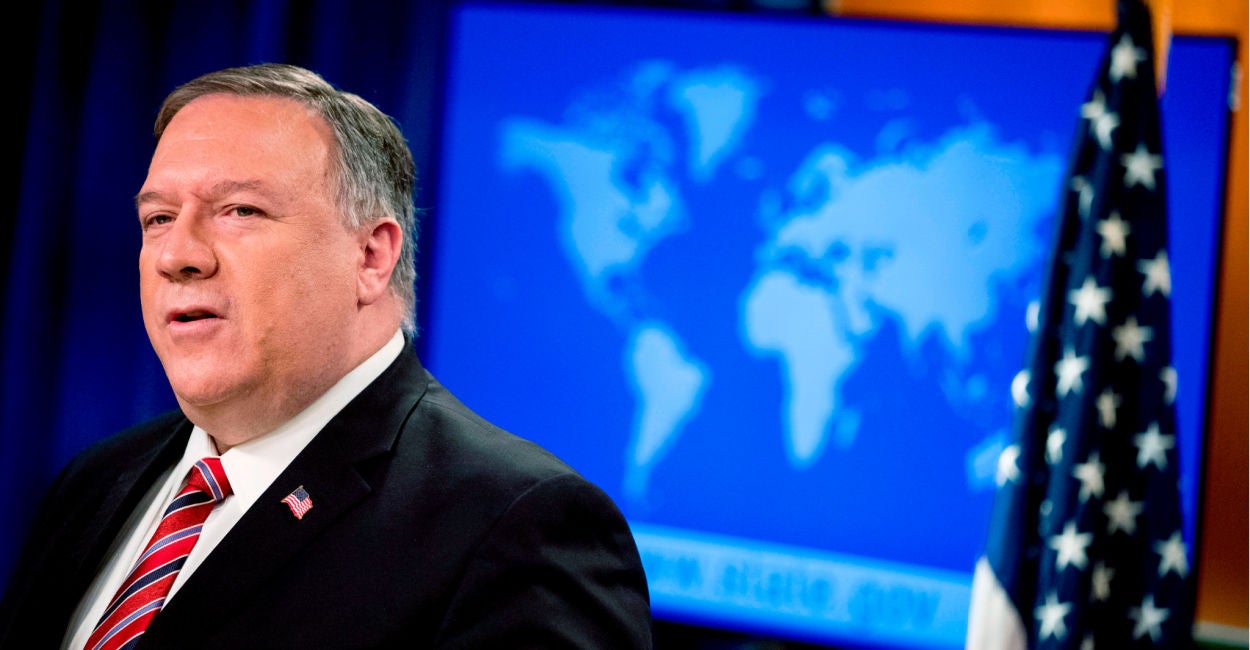[ad_1]
Secretary of State Mike Pompeo has asked us as Americans to take a look at our role in international human rights engagement; specifically, the connection between our nation’s founding principles and the role of the United States on the international stage.
Why should we heed his call? After all, the battle lines are clearly drawn. On the left, multilateral engagement is the answer to a successful world order, whereas many conservatives view the international bodies with considerable suspicion at best.
And yet, on July 16, the Commission on Unalienable Rights, convened by the secretary of state, released its first report, articulating a third—and deeply nuanced—understanding of America’s path to a revitalized foreign policy.
Evident in the report is a clear enthusiasm for the role of the U.S. in the world of international human rights—a far cry from the portrait of multilateral petulance critics might paint of the current administration, superficially derived from recent decisions such as our withdrawal from the World Health Organization.
The report makes apparent that it is possible to reconcile historical U.S. skepticism of the international order (largely due to concerns over sovereignty), with a passionate insistence on our country’s multilateral obligations in the name of human rights, derived from our privileged domestic democracy.
The writers of the report don’t mince words: “[I]t is plain to see that the ambitious human rights project of the past century is in crisis.”
Citing problems with the international institutions, overt violations of human rights at the hands of governments, and divisive tension over even what constitutes a human right, it is clear that many failures have tarnished the promises of the international human rights project, first put in motion after World War II.
As recently noted by former Deputy Secretary of State William Burns, the U.S. needs a new foreign policy, and few would argue that that will “require a new multilateralism—a patchwork of coalitions of like-minded states, which the U.S. is still better placed than any other country to assemble; a hard-nosed approach to reforming international institutions; and agile diplomacy.”
That’s easier said than done. But the Commission on Unalienable Rights provides newfound hope that the answers reside in what we already have as a mature democracy that has weathered many storms.
The role of the U.S. in resuscitating the international order is to be defined by the history of human rights protection in our democracy. As Pompeo explains, we can “ground America’s commitment to championing human rights in our enduring dedication to unalienable rights and our tradition of constitutional self-government.”
Although a seemingly ironic moment in American history to release a report on human rights exalting our national order, the commission does not turn a blind eye to the current state of internal strife.
Rather, it makes clear that this is a crucial time for the U.S. to examine its domestic failings in order to serve as a legitimate model for international human rights.
“The credibility of U.S. advocacy for human rights abroad depends on the nation’s vigilance in assuring that all its own citizens enjoy fundamental human rights,” the report states.
As a practical matter, what does all that mean at a time when, as the commission notes, “human rights are now misunderstood by many, manipulated by some, rejected by the world’s worst violators, and subject to ominous new threats”?
First, the future of human rights demands that the U.S. remain a major player on the international stage. Although more than human rights alone determines our international actions, it is our obligation to leverage U.S. influence for the pursuit of human rights everywhere, as informed by our national heritage.
At the same time, respect for sovereignty is paramount, and we should accord other countries ample room to determine how human rights are enjoyed in accordance with their own cultures.
Next, the commission emphasizes that we need to proceed very carefully with regard to the proliferation of “new” human rights, which are often driven by dictators or activists “determined to bypass ordinary politics and domestic democratic processes … to advance agendas that are not widely shared in the community of nations.”
Finally, the U.S. is wise to maintain “a position of selective constructive engagement” with institutions such as the United Nations. The crucial importance of our contribution there for human rights is clear. The U.S. also has a responsibility to hold the international institutions accountable to their mandates and prevent unwarranted incursions on sovereignty.
The Commission on Unalienable Rights’ deep dive into the history of U.S. involvement in the very definition of international human rights ultimately reveals that the U.N. at its founding was inherently consistent with American democratic principles. Since then, however, it has lost its way, often in egregious fashion.
Americans should be proud of our role as originators of the international human rights project and should seek to reclaim and rebuild it for its intended purpose.
[ad_2]
Read the Original Article Here

